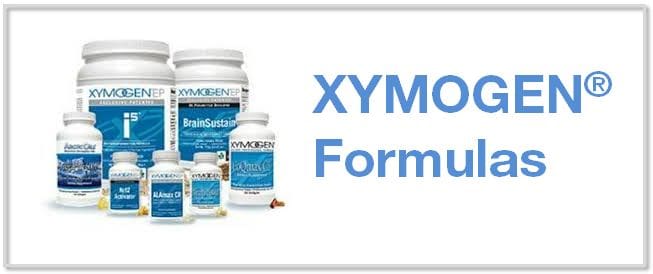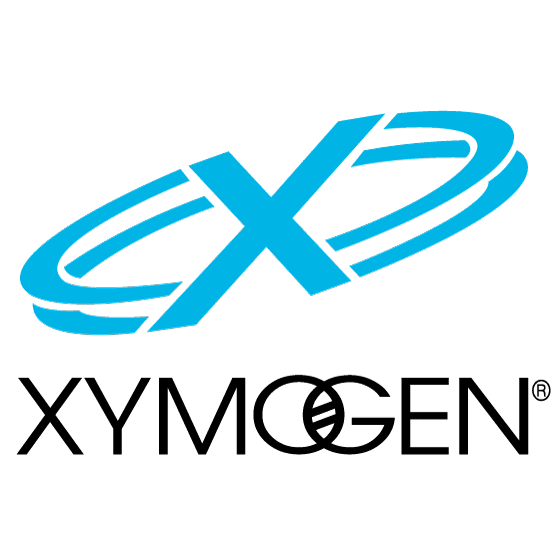Healthcare professionals can utilize a variety of clinical assessments to evaluate the methylation status of patients. However, there is no single assessment method or technique which can accurately demonstrate the complexity of methylation in the human body. Current assessments can help provide an understanding into methylation-related genetic polymorphisms, nutrient status, methylation-related neurotransmitters and neurotransmitter metabolites, amino acids, hormones and metabolites, oxidative stress, and detoxification load, all of which can also help provide the understanding of a patient’s methylation status.
Table of Contents
Understanding Methylation Status
Some assessment methods and techniques, including measures to determine DNA methylation status, are generally limited to research studies and are not yet available to healthcare professionals. As DNA methylation status assessments become available, healthcare is necessary to understand data because conflicting outcome measures have been demonstrated in research studies based on a variety of methodologies while methylation is further evaluated. Moreover, although methods and techniques, as well as research studies, are quickly evolving, patterns of DNA methylation status in humans across cells, tissues, age, populations, environmental factors like nutrition and lifestyle modifications, and disease, are only just being characterized by healthcare professionals.
It is essential that we emphasize a variety of indicators and be mindful of the restrictions of our interpretations as well as their misunderstood factors. Plasma homocysteine, by way of instance, can decrease as methylation activity improves, however, it can also decrease when oxidative stress levels increase, independently of methylation activity improvements. But, as we’ve previously discussed, only a few SNPs have known, quantifiable changes in enzymatic function, and even then, their overall outcome measures on methylation are unknown. Healthcare professionals must depend on multiple clinical assessments to determine methylation health. In the following articles, we will discuss methylation status assessment options available to healthcare professionals.
Understanding Genetic Profiling
Genetic profiling can help provide some evidence of potential methylation status and risk of developing diseases. Several gene SNPs increase methylation activity, such as CBS, and several other gene SNPs may decrease methylation activity, such as MTHFR, BNMT, MTR, MTRR, and AHCY. However, understanding the overall outcome measures of gene SNPs is complicated to determine through polymorphisms and environmental factors. By way of instance, research studies have demonstrated that the MTHFR C677T polymorphism is associated with an increased risk of autism spectrum disorder, (with an odds ratio = 1.42, 95% CI 1.09-1.85), however, similar research studies have also demonstrated that this risk can decrease through periconceptional folate or folic acid intake.
Furthermore, if a maternal MTHFR C677T polymorphism is combined with a CBS polymorphism, a lack of prenatal supplementation with B vitamins, and a fetal COMT polymorphism, the odds ratio for autism spectrum disorder can increase tremendously, (7.2, CI = 2.3–22.4; P=0.05). The risk of diseases associated with genotype is unfortunately rare because research studies on the combined outcome measures of gene SNPs are still very much in their early stages. In many circumstances, healthcare professionals will need to use careful clinical assessments to evaluate as well as to guide their treatments. The methylation-related genes presented in Table 1 below are frequently evaluated for SNPs. The outcome measures can help doctors understand patient methylation status.




A variety of methods and techniques are available to determine the methylation status of patients. However, the assessment of methylation status can still be challenging for many healthcare professionals. DNA methylation is characterized by the addition of a methyl group to DNA. Healthcare professionals must first understand the pros and cons of the variety of methods and techniques available to determine methylation status to allow them to make an informed choice when deciding which assessment will best suit their research study needs.
Dr. Alex Jimenez D.C., C.C.S.T. Insight
Smoothies and Juices for Methylation Support

While many healthcare professionals can recommend nutritional guidelines and lifestyle modifications to improve methylation support, there are several options you can try yourself at home. As described above, methylation support supplementation should be determined by a healthcare professional. Smoothies and juices are a fast and easy way to include all the necessary nutrients you need for methylation support without any side-effects. The smoothies and juices below are part of the Methylation Diet Food Plan.
Sea Green Smoothie
Servings: 1
Cook time: 5-10 minutes
• 1/2 cup cantaloupe, cubed
• 1/2 banana
• 1 handful of kale or spinach
• 1 handful of Swiss chard
• 1/4 avocado
• 2 teaspoons spirulina powder
• 1
• 3 or more ice cubes
Blend all ingredients in a high-speed blender until completely smooth and enjoy!
Berry Bliss Smoothie
Servings: 1
Cook time: 5-10 minutes
• 1/2 cup blueberries (fresh or frozen, preferably wild)
• 1 medium carrot, roughly chopped
• 1 tablespoon ground flaxseed or chia seed
• 1 tablespoons almonds
• Water (to desired consistency)
• Ice cubes (optional, may omit if using frozen blueberries)
Blend all ingredients in a high-speed blender until smooth and creamy. Best served immediately!
Sweet and Spicy Juice
Servings: 1
Cook time: 5-10 minutes
• 1 cup honeydew melons
• 3 cups spinach, rinsed
• 3 cups Swiss chard, rinsed
• 1 bunch cilantro (leaves and stems), rinsed
• 1-inch knob of ginger, rinsed, peeled and chopped
• 2-3 knobs whole turmeric root (optional), rinsed, peeled and chopped
Juice all ingredients in a high-quality juicer. Best served immediately!
Ginger Greens Juice
Servings: 1
Cook time: 5-10 minutes
• 1 cup pineapple cubes
• 1 apple, sliced
• 1-inch knob of ginger, rinsed, peeled and chopped
• 3 cups kale, rinsed and roughly chopped or ripped
• 5 cups Swiss chard, rinsed and roughly chopped or ripped
Juice all ingredients in a high-quality juicer. Best served immediately!
Zesty Beet Juice
Servings: 1
Cook time: 5-10 minutes
• 1 grapefruit, peeled and sliced
• 1 apple, washed and sliced
• 1 whole beet, and leaves if you have them, washed and sliced
• 1-inch knob of ginger, rinsed, peeled and chopped
Juice all ingredients in a high-quality juicer. Best served immediately!
Protein Power Smoothie
Serving: 1
Cook time: 5 minutes
• 1 scoop protein powder
• 1 tablespoon ground flaxseed
• 1/2 banana
• 1 kiwi, peeled
• 1/2 teaspoon cinnamon
• Pinch of cardamom
• Non-dairy milk or water, enough to achieve desired consistency
Blend all ingredients in a high-powered blender until completely smooth. Best served immediately!
ProLon® Fasting Mimicking Diet
Balanced methylation support can be achieved through proper nutrition. The ProLon® fasting mimicking diet offers a 5-day meal program which has been individually packed and labeled to serve the foods you need for the FMD in precise quantities and combinations. The meal program is made up of ready-to-eat or easy-to-prepare, plant-based foods, including bars, soups, snacks, supplements, a drink concentrate, and teas. The products are scientifically formulated and great tasting. Before starting the ProLon® fasting mimicking diet, 5-day meal program, please make sure to talk to a healthcare professional to find out if the FMD is right for you. The ProLon® fasting mimicking diet can help promote methylation support, among a variety of other
Many doctors and functional medicine practitioners may recommend higher doses of methyl donors in several patients, however, further research studies are needed to determine the proper amount of methylation supplementation. The scope of our information is limited to chiropractic, musculoskeletal and nervous health issues as well as functional medicine articles, topics, and discussions. To further discuss the subject matter above, please feel free to ask Dr. Alex Jimenez or contact us at 915-850-0900 .
Curated by Dr. Alex Jimenez
Additional Topic Discussion: Acute Back Pain
Back pain is one of the most prevalent causes of disability and missed days at work worldwide. Back pain attributes to the second most common reason for doctor office visits, outnumbered only by upper-respiratory infections. Approximately 80 percent of the population will experience back pain at least once throughout their life. Your spine is a complex structure made up of bones, joints, ligaments, and muscles, among other soft tissues. Injuries and/or aggravated conditions, such as herniated discs, can eventually lead to symptoms of back pain. Sports injuries or automobile accident injuries are often the most frequent cause of back pain, however, sometimes the simplest of movements can have painful results. Fortunately, alternative treatment options, such as chiropractic care, can help ease back pain through the use of spinal adjustments and manual manipulations, ultimately improving pain relief.
Formulas for Methylation Support
XYMOGEN’s Exclusive Professional Formulas are available through select licensed health care professionals. The internet sale and discounting of XYMOGEN formulas are strictly prohibited.
Proudly, Dr. Alexander Jimenez makes XYMOGEN formulas available only to patients under our care.
Please call our office in order for us to assign a doctor consultation for immediate access.
If you are a patient of Injury Medical & Chiropractic Clinic, you may inquire about XYMOGEN by calling 915-850-0900.
For your convenience and review of the XYMOGEN products please review the following link.*XYMOGEN-Catalog-Download
* All the above XYMOGEN policies remain strictly in force.
***
Post Disclaimer
Professional Scope of Practice *
The information herein on "Assessment Of Methylation Status Part 1" is not intended to replace a one-on-one relationship with a qualified health care professional or licensed physician and is not medical advice. We encourage you to make healthcare decisions based on your research and partnership with a qualified healthcare professional.
Blog Information & Scope Discussions
Welcome to El Paso's Premier Wellness, Personal Injury Care Clinic & Wellness Blog, where Dr. Alex Jimenez, DC, FNP-C, a Multi-State board-certified Family Practice Nurse Practitioner (FNP-BC) and Chiropractor (DC), presents insights on how our multidisciplinary team is dedicated to holistic healing and personalized care. Our practice aligns with evidence-based treatment protocols inspired by integrative medicine principles, similar to those on this site and our family practice-based chiromed.com site, and focuses on restoring health naturally for patients of all ages.
Our areas of multidisciplinary practice include Wellness & Nutrition, Chronic Pain, Personal Injury, Auto Accident Care, Work Injuries, Back Injury, Low Back Pain, Neck Pain, Migraine Headaches, Sports Injuries, Severe Sciatica, Scoliosis, Complex Herniated Discs, Fibromyalgia, Chronic Pain, Complex Injuries, Stress Management, Functional Medicine Treatments, and in-scope care protocols.
Our information scope is multidisciplinary, focusing on musculoskeletal and physical medicine, wellness, contributing etiological viscerosomatic disturbances within clinical presentations, associated somato-visceral reflex clinical dynamics, subluxation complexes, sensitive health issues, and functional medicine articles, topics, and discussions.
We provide and present clinical collaboration with specialists from various disciplines. Each specialist is governed by their professional scope of practice and their jurisdiction of licensure. We use functional health & wellness protocols to treat and support care for musculoskeletal injuries or disorders.
Our videos, posts, topics, and insights address clinical matters and issues that are directly or indirectly related to our clinical scope of practice.
Our office has made a reasonable effort to provide supportive citations and has identified relevant research studies that support our posts. We provide copies of supporting research studies upon request to regulatory boards and the public.
We understand that we cover matters that require an additional explanation of how they may assist in a particular care plan or treatment protocol; therefore, to discuss the subject matter above further, please feel free to ask Dr. Alex Jimenez, DC, APRN, FNP-BC, or contact us at 915-850-0900.
We are here to help you and your family.
Blessings
Dr. Alex Jimenez DC, MSACP, APRN, FNP-BC*, CCST, IFMCP, CFMP, ATN
email: [email protected]
Multidisciplinary Licensing & Board Certifications:
Licensed as a Doctor of Chiropractic (DC) in Texas & New Mexico*
Texas DC License #: TX5807, Verified: TX5807
New Mexico DC License #: NM-DC2182, Verified: NM-DC2182
Multi-State Advanced Practice Registered Nurse (APRN*) in Texas & Multi-States
Multi-state Compact APRN License by Endorsement (42 States)
Texas APRN License #: 1191402, Verified: 1191402 *
Florida APRN License #: 11043890, Verified: APRN11043890 *
Colorado License #: C-APN.0105610-C-NP, Verified: C-APN.0105610-C-NP
New York License #: N25929, Verified N25929
License Verification Link: Nursys License Verifier
* Prescriptive Authority Authorized
ANCC FNP-BC: Board Certified Nurse Practitioner*
Compact Status: Multi-State License: Authorized to Practice in 40 States*
Graduate with Honors: ICHS: MSN-FNP (Family Nurse Practitioner Program)
Degree Granted. Master's in Family Practice MSN Diploma (Cum Laude)
Dr. Alex Jimenez, DC, APRN, FNP-BC*, CFMP, IFMCP, ATN, CCST
My Digital Business Card
Licenses and Board Certifications:
DC: Doctor of Chiropractic
APRNP: Advanced Practice Registered Nurse
FNP-BC: Family Practice Specialization (Multi-State Board Certified)
RN: Registered Nurse (Multi-State Compact License)
CFMP: Certified Functional Medicine Provider
MSN-FNP: Master of Science in Family Practice Medicine
MSACP: Master of Science in Advanced Clinical Practice
IFMCP: Institute of Functional Medicine
CCST: Certified Chiropractic Spinal Trauma
ATN: Advanced Translational Neutrogenomics
Memberships & Associations:
TCA: Texas Chiropractic Association: Member ID: 104311
AANP: American Association of Nurse Practitioners: Member ID: 2198960
ANA: American Nurse Association: Member ID: 06458222 (District TX01)
TNA: Texas Nurse Association: Member ID: 06458222
NPI: 1205907805
| Primary Taxonomy | Selected Taxonomy | State | License Number |
|---|---|---|---|
| No | 111N00000X - Chiropractor | NM | DC2182 |
| Yes | 111N00000X - Chiropractor | TX | DC5807 |
| Yes | 363LF0000X - Nurse Practitioner - Family | TX | 1191402 |
| Yes | 363LF0000X - Nurse Practitioner - Family | FL | 11043890 |
| Yes | 363LF0000X - Nurse Practitioner - Family | CO | C-APN.0105610-C-NP |
| Yes | 363LF0000X - Nurse Practitioner - Family | NY | N25929 |
Dr. Alex Jimenez, DC, APRN, FNP-BC*, CFMP, IFMCP, ATN, CCST
My Digital Business Card









 Again, We Welcome You.
Again, We Welcome You.
Comments are closed.